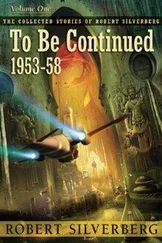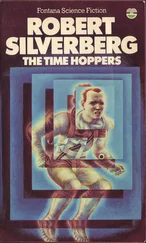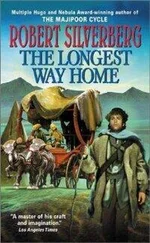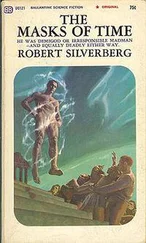Robert Silverberg - The Man Who Floated in Time
Здесь есть возможность читать онлайн «Robert Silverberg - The Man Who Floated in Time» весь текст электронной книги совершенно бесплатно (целиком полную версию без сокращений). В некоторых случаях можно слушать аудио, скачать через торрент в формате fb2 и присутствует краткое содержание. Год выпуска: 2013, ISBN: 2013, Издательство: Subterranean Press, Жанр: Фантастика и фэнтези, на английском языке. Описание произведения, (предисловие) а так же отзывы посетителей доступны на портале библиотеки ЛибКат.
- Название:The Man Who Floated in Time
- Автор:
- Издательство:Subterranean Press
- Жанр:
- Год:2013
- ISBN:978-1-59606-604-5
- Рейтинг книги:3 / 5. Голосов: 1
-
Избранное:Добавить в избранное
- Отзывы:
-
Ваша оценка:
- 60
- 1
- 2
- 3
- 4
- 5
The Man Who Floated in Time: краткое содержание, описание и аннотация
Предлагаем к чтению аннотацию, описание, краткое содержание или предисловие (зависит от того, что написал сам автор книги «The Man Who Floated in Time»). Если вы не нашли необходимую информацию о книге — напишите в комментариях, мы постараемся отыскать её.
The Man Who Floated in Time — читать онлайн бесплатно полную книгу (весь текст) целиком
Ниже представлен текст книги, разбитый по страницам. Система сохранения места последней прочитанной страницы, позволяет с удобством читать онлайн бесплатно книгу «The Man Who Floated in Time», без необходимости каждый раз заново искать на чём Вы остановились. Поставьте закладку, и сможете в любой момент перейти на страницу, на которой закончили чтение.
Интервал:
Закладка:
The Man Who Floated in Time
by Robert Silverberg
There was something shady and sly about him. For one thing he was small and slightly built, and I have an instinctive mistrust of men who stand less than five feet five: they seem too agile and unpredictable, shifty little Napoleons who are apt to come at you from three directions at once. Then, too, his narrow glittery gray eyes, though they did actually make contact with mine, never seemed to be aimed directly at me but rather, somehow, sent a beam of vision hooking around a sharply banked curve even when his face looked at me right square on. I didn’t like that. He was about sixty, sixty-five, lean and trim, not well dressed, his gray hair cropped very short and gone at the crown.
“What I do,” he said, “is travel in time. I float freely back to other eras.”
“Really,” I said. “Never forward?”
“Oh, no, never. That’s quite impossible. The future doesn’t exist. The past is there, solid and real, a place, you know, like Des Moines or Wichita. One can go to Wichita if one makes the proper connection. But one can’t go to a city that’s never been built. It isn’t conceivable. Well, perhaps it’s conceivable, but it isn’t doable , do you follow me? I go to the past, though. I’ve seen Attila the Hun. I’ve seen Julius Caesar. I wish I could say I went to bed with Catherine the Great, but I didn’t, although I had a few vodkas with someone who did. She smelled of garlic, he said, and she took forever to come. You don’t believe any of what I’m saying, do you?”
“You’re asking me to swallow quite a lot,” I said mildly.
He leaned forward in a conspiratorial way. “You’re not the kind of man who’s easily convinced of the unusual. I can tell. No ancient astronaut stuff for you, no UFO contact stories, no psychic spoon-bendings. That’s good. I don’t want an easy believer. I want a skeptic to hear me out and test my words and arrive at his own acceptance of the truth his own way. That’s all I ask of you, that you don’t scoff, that you don’t write me off instantly as a crackpot. All right?”
“I’ll try.”
“Now: what do you feel when I tell you I’ve traveled in time?”
“Instinctive resistance. An immediate sense that I’ve got myself mixed up with a crackpot or at best a charming liar.”
“Fine. I wouldn’t have come to you if I thought you’d react any other way.”
“What do you want from me, then?”
“That you listen to me and suspend your disbelief at least now and then and ask me a question or two, probe me, test me, give me the benefit of the doubt long enough to let me get through to you. And then that you help me get my experiences down on paper. I’m old and I’m sick and I’m not going to be here much longer, and I want to leave a memoir, a record, do you see? And I need someone like you to help me.”
“Why not write it yourself?” I asked.
“Easy enough to say. But I’m no writer. I don’t have the gift. I can’t even do letters without freezing up.”
“Doing a memoir doesn’t require a gift. You simply put down your story on paper, just as though you were telling it to me. Writing’s not as hard as nonwriters like to think it is.”
“Writing is easy for you,” he said, “and time-traveling is easy for me. And I’m about as capable of writing as you are of traveling in time. Do you see?” He put his hand on my wrist, a gesture of premature intimacy that sent a quick, and quickly suppressed, quiver through my entire arm. “Help me to get my story down, will you? You think I’m a crazy old drunk, and you wish you had never given me minute one of your time, but I ask you to put those feelings aside and accept just for the moment the possibility that this isn’t just a mess of lies and fantasies. Can you do that?”
“Go on,” I said. “Tell me about yourself.”
He said his time-traveling had begun when he was a boy. The technique by which he claimed to be able to unhitch himself from the bonds of the continuum and drift back along the time-line was apparently one that he developed spontaneously, a sort of applied meditation that amounted to artfully channeled fantasizing. Through this process, which he refined and perfected between the ages of eight and eleven, he achieved what I suppose must be called out-of-the-body experiences, in which his psyche, his consciousness, his walking intelligence, vanished into the past while his body remained here, ostensibly asleep.
On his first voyage he found himself in an American city of the colonial era. He had no idea where he was when he was older, working from his searingly vivid memories of the journey, he was able to identify it as Charleston, South Carolina—but he knew at once, from his third-grade studies, that the powdered wigs and three-cornered hats must mean the eighteenth century. He was there for three days, fascinated at first, then frightened and confused and terribly hungry—
“Hungry?” I said. “A wandering psyche with an appetite?”
“You don’t perceive yourself as disembodied,” he replied, looking pleased that I had raised an objection. “You feel that you have been quite literally transplanted to the other era. You need to eat, to sleep, to perform bodily functions. I was a small boy lost in a prerevolutionary city. The first night I slept in a forest. In the morning I returned to the city where some people found me, dirty and lost, and took me to a mansion where I was bathed and fed—”
“And given clothes? You must have been in your pajamas.”
“No, you are always clothed in the clothing of the era when you arrive,” he said. “And equipped with the language of the region and a certain amount of local currency.”
“How very convenient. What providential force takes care of those little details?”
He smiled. “Those are part of the illusion. Plainly I have no real coins with me, and of course I haven’t magically learned new languages. But the aspect of me that makes the journey has the capacity to lead others to feel that they are receiving true coinage from me; and as my soul makes contact with theirs, they imagine that it is their own language I speak. What I do is not actual bodily travel, you understand. It is astral projection, to use a phrase that I know will arouse hostility in you. My real body, in its pajamas, remained snug in my bed; but the questing anima, the roving spirit, arrived fully equipped. Of course the money is dream-money and melts away the moment I go farther from it than a certain range. In my travels I have left angry innkeepers and cheated peddlers and even a few swindled harlots all over the world, I’m afraid. But for the moment what I give them passes as honest coin.”
“Yet the astral body must be fed with real food?”
“Indeed. And I think that if the astral body is injured, the sleeping real body feels the pain.”
“How can you be sure of that?”
“Because,” he said, “I have fallen headlong down temple steps in the Babylon of Hammurabi and awakened to find bruises on my thigh and shoulder. I have slashed myself on vines in the jungles of ancient Cambodia and awakened to see the cuts. I have stood in the snows of Pleistocene Europe shivering with the Neanderthals and awakened with frostbite in July.”
There is an Italian saying: Se non è vero, è ben trovato. “If it is not true, it is well invented.” There was in his eyes and on his thin gray-stubbled face at that moment a look of such passionate conviction, such absolute sincerity, that I began to tremble, hearing him talk of feeling the bite of Pleistocene winds, and for the first time I began to allow myself the possibility of thinking that this man could be something other than a boozy old scamp with a vivid imagination. But I was far from converted.
Читать дальшеИнтервал:
Закладка:
Похожие книги на «The Man Who Floated in Time»
Представляем Вашему вниманию похожие книги на «The Man Who Floated in Time» списком для выбора. Мы отобрали схожую по названию и смыслу литературу в надежде предоставить читателям больше вариантов отыскать новые, интересные, ещё непрочитанные произведения.
Обсуждение, отзывы о книге «The Man Who Floated in Time» и просто собственные мнения читателей. Оставьте ваши комментарии, напишите, что Вы думаете о произведении, его смысле или главных героях. Укажите что конкретно понравилось, а что нет, и почему Вы так считаете.












